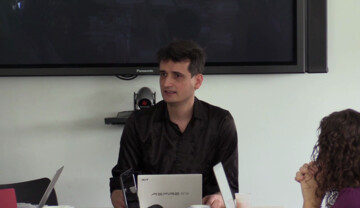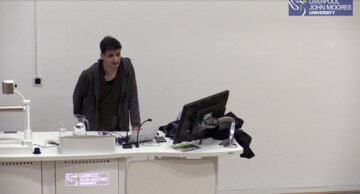My term deals with the open problem of constituent power today and the related and equally open notion of constituencies. By constituent power we mean not just and not mainly the juridical notion coined during the English and American Revolutions and then coded by Sieyés as pouvoir constituant de la nation. Rather by it, we mean – in line with Antonio Negri’s body of research – a historical social and political force/power that (ontologically) precedes any constitutional and/or legal arrangement that pretends to rely or be based on it.
As we know, the notion of constituent power haunts the history of modern revolutions – from the Levellers, Hobbes and then Burke to the October Revolution and Lenin, Luxemburg, Schmitt and Kelsen. Since then, it is inextricably linked to the “dangers of democracy”, to the ever-haunting democratic excess. We also know that this excess has little to do with the Aristotelian problem of the mean, or with the contemporary problem of the resiliency of a given social system with regards to its critical points. It really has to do with the dark side of capitalist modernity and the forces of → labour subsumed under capital: it has to do with the danger of the multitude, which can always constitute itself and act, quoting Spinoza, “guided, as it were, by one mind”.
This very Spinozian multitude is theoretically defined but methodologically and politically denied by Spinoza himself, when he excludes women, fools, and foreigners from the democratic constituency. Reliqua desiderantur: the rest is missing. The unfinished Tractatus Politicus ends abruptly before we can enter into the realm of democracy as such, omnino absolutum imperium.
This absolute but unreal democracy echoes with the current predicament of democratic representation, freedom and justice everywhere throughout the world-system. It seems that no modern revolution has really solved the political and social conundrum that sees the transformation of the constituent power of the multitude (as the sole and real subject of democracy) into the constituted power of an ever absent (represented) people.
We are surely facing problems that do not have to do with the transcendental limit of political reason – according to which constituent power would be its absolute limit of political intelligibility – but rather they have to do with the historical determinations of the relationship between democracy and capitalism.
In Liverpool, I described the current traits of that relationship on the basis of the recent global and European upheavals since 2011. This also involves addressing the theoretical and political possibilities of going beyond that relationship, namely, the possibility of decoupling the definition of a real democracy from the ever-happening renewal of the relationship between the living labour of the multitude and the capitalist command over life and society.



